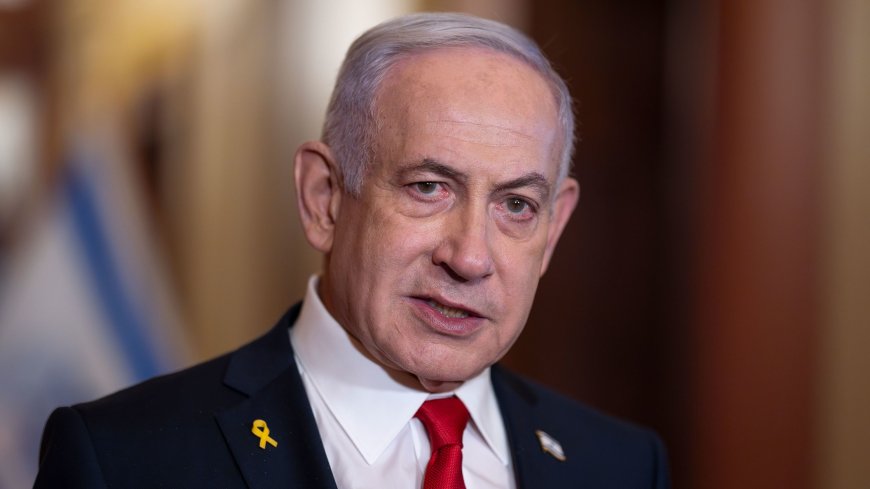Full Gaza Occupation? Mideast Experts Warn of Global Fallout as Israel Weighs Next Steps
Mideast experts warn of global fallout as Israel considers full Gaza occupation. The move could reshape regional alliances and worsen humanitarian crises.

As Israel intensifies its military campaign in Gaza, high-ranking Middle East experts are warning that a full occupation of the territory could spark profound humanitarian, political, and geopolitical consequences far beyond the region. The Israeli Defense Forces (IDF) continue ground operations amid growing speculation that Prime Minister Benjamin Netanyahu’s government may be leaning toward a full territorial reoccupation of the Gaza Strip—something not seen since Israel’s withdrawal in 2005.
The potential decision has sharply divided both domestic Israeli politics and international diplomatic circles. Strategic analysts say such a move could not only escalate the conflict with Hamas but also entangle Israel in a long-term and volatile occupation that may upend the broader balance in the Middle East.
Regional Experts Urge Caution: “No Exit Strategy in Sight”
Several prominent scholars and former diplomats are voicing concerns that any full-scale re-entry into Gaza would place Israel in an untenable military and political position.
Dr. Lina Kassab, a professor of Middle Eastern Studies at Columbia University, argues that “a full occupation of Gaza would effectively make Israel responsible for the lives of over 2 million Palestinians under international law, including humanitarian access, utilities, education, and more.”
She adds, “The longer Israel remains, the more it may face accusations of collective punishment and even potential violations of international law, particularly from neutral or opposing states in the UN.”
Already, human rights groups like Amnesty International have raised alarms over deteriorating civilian conditions, citing limited food and water access in southern Gaza as civilians flee the north.
U.S. and International Stakeholders Weigh In
The Biden administration—while a close ally of Israel—has shown signs of concern regarding the idea of long-term occupation. Secretary of State Antony Blinken recently reiterated that any Israeli plans for Gaza's governance must include Palestinian representation and avoid permanent Israeli control.
The United Nations has also been vocal. UN Secretary-General António Guterres stated this week that “any move by Israel to permanently reoccupy Gaza would be catastrophic, not only for Palestinians but also for regional stability.”
Even American officials who served under Trump have expressed alarm. Former National Security Advisor H.R. McMaster warned in a recent Brookings Institution roundtable that “a full occupation is not sustainable militarily, economically, or diplomatically unless Israel has an end-game strategy—which they don’t appear to have.”
Hamas and the Resilience Dilemma
The question of whether a full occupation would succeed in eradicating Hamas remains hotly debated. While the Israeli government maintains that its goal is to dismantle Hamas infrastructure, many analysts believe that such efforts may only radicalize more Gazans, breeding a new generation of militants.
Dr. Khaled Al-Hroub, a professor at Northwestern University in Qatar, notes that “historically, the idea that you can ‘eliminate’ a grassroots movement through military means has proven false. The longer Israel stays in Gaza, the more resentment it will foster.”
Others agree. “If Hamas falls, it could lead to a dangerous power vacuum,” warns Michael Singh of the Washington Institute for Near East Policy. “You might remove one actor, but in its place, you could see splinter groups or worse—foreign powers vying for influence in the ruins.”
Domestic Israeli Pressure Mounting
Back home, Prime Minister Netanyahu faces his own firestorm of criticism. While right-wing allies are pushing for a definitive military solution, center-left politicians, IDF veterans, and members of the Israeli security establishment are warning that prolonged engagement in Gaza could backfire.
The Israeli public remains deeply divided. According to a new poll by the Israel Democracy Institute, 52% of Israelis support continued military operations, but only 34% favor full reoccupation. A growing percentage also worry about IDF casualties and economic strain.
Military analyst Amos Harel wrote in Haaretz that “even with military superiority, the cost of urban warfare in Gaza—combined with political isolation—could turn Israel’s position from powerful to precarious in a matter of months.”
Humanitarian Collapse and Global Response
The humanitarian toll continues to climb. The United Nations reports that over 60% of Gaza’s population is now internally displaced, with thousands seeking shelter in UN-run schools and hospitals.
The World Health Organization has warned that the region’s healthcare system is collapsing. Fuel shortages, bombed infrastructure, and limited humanitarian access are pushing Gaza’s hospitals into crisis mode.
Egypt, Jordan, and Qatar have each expressed urgent concerns over the looming disaster, calling on Israel to open humanitarian corridors. Qatar’s foreign minister stated in a press briefing that “Israel will bear the consequences of mass civilian suffering if it continues its military escalation without a viable peace framework.”
Long-Term Consequences for Regional Stability
Analysts fear that if Israel proceeds with full reoccupation, the ripple effects could destabilize fragile peace agreements in the region. Countries that normalized ties with Israel under the Abraham Accords—including the United Arab Emirates and Bahrain—may be forced to reassess their positions.
Even Saudi Arabia, which was reportedly in quiet talks with the U.S. about recognizing Israel, has pulled back dramatically. Crown Prince Mohammed bin Salman has warned against any moves that “threaten Arab identity and sovereignty.”
Russia and China have also weighed in, using the crisis to criticize Western foreign policy while subtly expanding their influence in the Middle East. This has added a cold war-like layer to an already complicated geopolitical tableau.
Conclusion: A High-Stakes Decision
Israel’s debate over a potential full occupation of Gaza marks one of the most consequential strategic decisions in its modern history. With pressure mounting from all sides—diplomatically, militarily, and morally—Prime Minister Netanyahu’s government must decide whether short-term security justifies long-term entanglement.
Experts warn that unless Israel can articulate a clear and sustainable post-war vision, a full reoccupation may bring more peril than peace.











